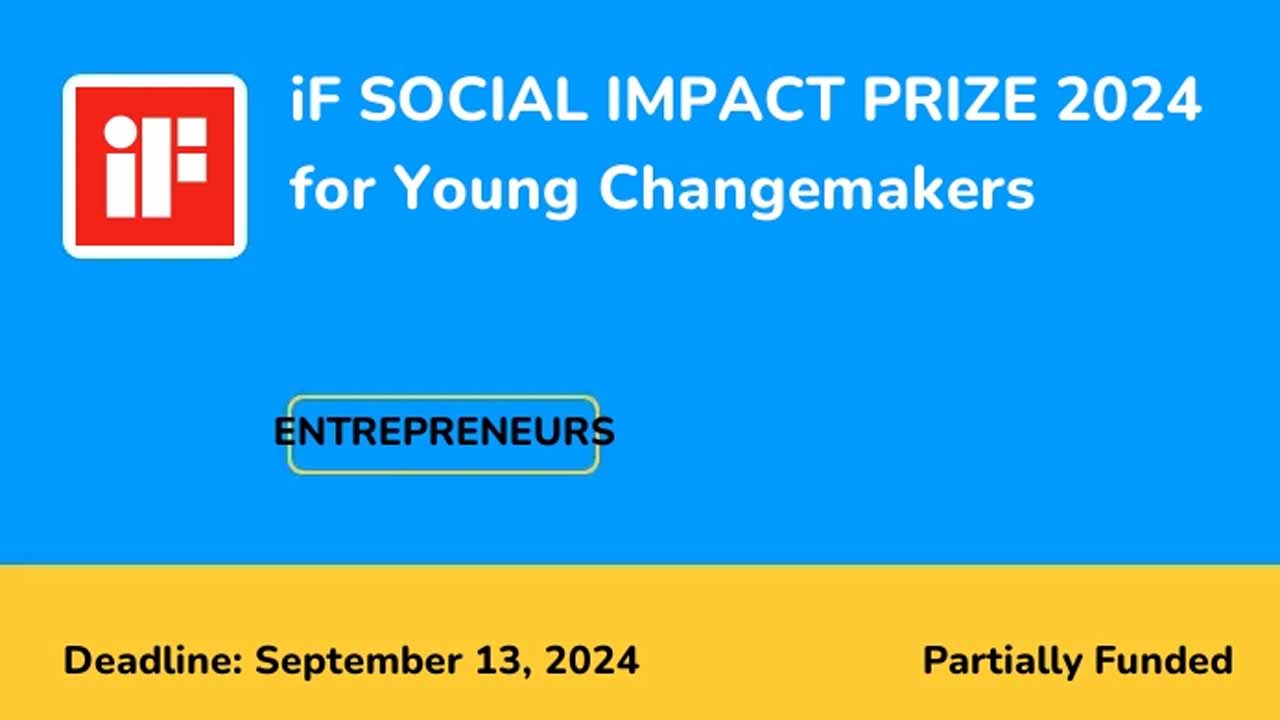Education
Mastering Assessments: How Parents and Friends Can Boost Learning

Assessments are a cornerstone of the educational experience, shaping how students learn and demonstrate their knowledge. In high school and college, where academic pressures intensify, understanding and excelling in various types of assessments can significantly impact a student’s success. Parents and friends play a crucial role in supporting students through this journey. Here’s a guide to six types of assessments and how you can help students excel in each.
6 Types of Assessments: How to Help High School and College Students Excel

1. Formative Assessments:
- What They Are: Formative assessments are informal checks of student understanding, typically conducted during the learning process. They include quizzes, class discussions, and in-class activities.
How to Help:
- Parents: Encourage regular review sessions at home, making use of flashcards or educational apps that offer practice quizzes. Engage in discussions about what they’re learning, and ask open-ended questions to stimulate critical thinking.
- Friends: Form study groups where you can quiz each other, discuss topics, and clarify doubts. Peer teaching is a powerful tool—explaining concepts to friends can reinforce your own understanding.
2. Summative Assessments
- What They Are: Summative assessments evaluate student learning at the end of an instructional period. These include final exams, end-of-term projects, and standardized tests.
How to Help:
- Parents: Create a quiet, distraction-free study environment at home. Help them develop a study schedule that breaks down the material into manageable chunks and includes regular breaks.
- Friends: Share resources like notes and past papers. Organize mock exams to simulate the test environment, helping each other get comfortable with the pressure of timed assessments.
3. Diagnostic Assessments
- What They Are: Diagnostic assessments are pre-tests that identify students’ strengths and weaknesses before instruction begins. They help teachers tailor their lessons to meet students’ needs.
How to Help:
- Parents: Discuss the results with your child and their teachers to understand areas needing improvement. Use educational resources to address specific weaknesses.
- Friends: Collaborate to tackle challenging topics together. If someone excels in a particular area, let them lead study sessions on that subject.
4. Ipsative Assessments
- What They Are: Ipsative assessments compare a student’s current performance with their past performances. They focus on personal improvement rather than comparison with peers.
How to Help:
- Parents: Celebrate progress, no matter how small. Positive reinforcement can boost confidence and motivation. Set realistic, incremental goals to help track improvement.
- Friends: Encourage each other by acknowledging personal achievements. Share strategies that have worked well for you and cheer each other on in overcoming challenges.
5. Norm-Referenced Assessments
- What They Are: These assessments compare a student’s performance against a national or international standard or with other students. Examples include SATs and ACTs.
How to Help:
- Parents: Invest in test prep materials or consider enrolling your child in a prep course. Monitor progress and provide continuous encouragement.
- Friends: Study together for these standardized tests. Exchange tips and strategies for tackling different sections, and keep each other motivated through the preparation period.
6. Criterion-Referenced Assessments
- What They Are: Criterion-referenced assessments measure student performance against a fixed set of criteria or learning standards. Examples include AP exams and state assessments.
How to Help:
- Parents: Familiarize yourself with the criteria and standards your child needs to meet. Provide resources and support to help them understand and meet these criteria.
- Friends: Create study schedules focused on the specific criteria of the assessment. Use rubrics to evaluate each other’s work and offer constructive feedback.
Additional Tips for Supporting Students
- Encouraging Time Management: Effective time management is crucial for success in all types of assessments. Parents can help students develop a study plan that allocates specific times for different subjects and activities. Friends can remind each other of deadlines and hold each other accountable for sticking to their schedules.
- Providing Emotional Support: Academic stress can take a toll on students’ mental health. Parents should maintain open lines of communication, offering a listening ear and emotional support. Friends should watch out for signs of stress and offer encouragement and understanding.
- Leveraging Technology: Use educational apps and online resources to supplement learning. Parents can introduce apps that offer practice questions and interactive learning experiences. Friends can share useful websites and tools that have helped them in their studies.
- Creating a Positive Study Environment: A positive study environment is key to effective learning. Parents should ensure that the study area is well-lit, quiet, and free from distractions. Friends can help each other find conducive study spaces, whether it’s a library, coffee shop, or quiet corner at home.
- Engaging in Regular Review: Regular review helps reinforce learning and improve retention. Parents can set aside time each week for a review session. Friends can organize weekly study groups to go over material together, ensuring that everyone stays on track.
- Education Loan: Education loans have become a common solution to bridge the financial gap. However, taking an education loan is a substantial commitment that requires careful consideration and planning.
Conclusion
Assessments are a critical component of the educational journey, and with the right support from parents and friends, students can navigate them successfully. By understanding the different types of assessments and implementing these strategies, you can help high school and college students not only meet but exceed their academic goals. Remember, your encouragement and support can make a significant difference in their educational experience.
Scholarships
Worldwide University of Edinburgh Data Analytics Scholarship for Students 2024

The University of Edinburgh Business School is offering a range of scholarships for students pursuing the Master of Science in Data and Decision Analytics (Online) program in 2024. These scholarships are designed to support students from all nationalities and backgrounds, providing financial assistance to help them achieve their academic goals.
Scholarship Details
The University of Edinburgh Business School Data Analytics (Online) Scholarship Programme offers the following benefits:
- Scholarship Value: Awards of £5,000
- Nationality: Open to students from all countries
- Deadline: 01 July 2024
Eligibility Criteria
To be eligible for the University of Edinburgh Business School Data Analytics (Online) Scholarship Programme, applicants must meet the following criteria:
- Programme: Must be commencing study in September 2024 on the Master of Science in Data and Decision Analytics (Online) program.
- Academic Standing: Hold a minimum qualification of above-average academic achievement, typically 65% or above overall at the Masters level, with a distinction-level dissertation, or the overseas equivalent.
- English Competency: Must meet the English requirements for the PhD programme. The most commonly approved certificate is an IELTS, for which the minimum accepted score is 7.0 overall with at least 6.0 in each section.
Application Process
The application process for the University of Edinburgh Business School Data Analytics (Online) Scholarship Programme involves the following steps:
- Apply for Admission: Students must first apply for admission to the Master of Science in Data and Decision Analytics (Online) program at the University of Edinburgh Business School.
- Submit Scholarship Application: Eligible candidates should then submit the scholarship application through the university’s official portal.
- Evaluation and Selection: Applications are evaluated and selected by a panel of senior academic colleagues within the Business School.
Additional Funding Opportunities
The University of Edinburgh offers several other funding opportunities for students, including:
- Edinburgh Global Online Learning Masters Scholarships: Twelve scholarships covering full tuition fees for eligible part-time distance learning Masters programs.
- UK Government Postgraduate Loans: Available to UK residents for part-time or full-time postgraduate study.
- Other External Funding: Students can search for scholarships and funding opportunities on the University of Edinburgh website.
About the University of Edinburgh
The University of Edinburgh is a world-leading institution, ranked 22nd in the world in the QS 2024 rankings. The University of Edinburgh Business School is accredited by the Association to Advance Collegiate Schools of Business (AACSB), EFMD Quality Improvement System (EQUIS), and Association of MBAs (AMBA), highlighting its commitment to excellence in teaching and research.
For more information about the University of Edinburgh Business School Data Analytics (Online) Scholarship Programme and to apply, please visit the university’s website or contact the Business School directly.
Application Deadline: July 1, 2024.
For More Information,
Visit the Official Website
Scholarships
2024 Swansea University International Postgraduate Research Excellence Scholarships

Swansea University, a leading research institution in the UK, is offering the prestigious International Postgraduate Research Excellence Scholarships for the 2024 academic year. These highly competitive scholarships are designed to support exceptional international students pursuing postgraduate research degrees at the university.
Scholarship Benefits
The International Postgraduate Research Excellence Scholarships provide comprehensive financial support to recipients, including:
- A full tuition fee waiver for the duration of the research degree program
- A generous living allowance of £15,285 per year (2023/24 rate)
- Access to a world-class research environment and facilities
The scholarships are available for both Master’s by Research and Doctoral (PhD) programs at Swansea University.
Eligibility Criteria
To be eligible for the International Postgraduate Research Excellence Scholarships, applicants must meet the following criteria:
- Be an international student (non-UK/Republic of Ireland)
- Hold a relevant undergraduate degree with a minimum of a 2:1 classification or equivalent
- Meet the English language proficiency requirements for their chosen program
- Have applied for and met the entry requirements for a Master’s of Research or a Doctoral degree at Swansea University
Application Process
The application process for the International Postgraduate Research Excellence Scholarships involves the following steps:
- Apply for admission to a postgraduate research degree program at Swansea University.
- Submit the scholarship application through the university’s official portal, including a research proposal and supporting documents.
- Successful applicants will be notified of their scholarship award.
The application deadline for the 2024 scholarships is typically in early 2024. Interested students are encouraged to check the university’s website for the most up-to-date information on the application process and deadlines.
About Swansea University
Swansea University is a research-led institution known for its excellence in various fields, including engineering, science, and medicine. The university is ranked among the top 30 in the UK for research quality and impact, according to the Research Excellence Framework (REF) 2021.
International students at Swansea University benefit from a supportive learning environment, access to cutting-edge facilities, and opportunities for personal and professional growth. The university’s commitment to research and innovation makes it an ideal destination for aspiring postgraduate researchers.
For more information about the 2024 Swansea University International Postgraduate Research Excellence Scholarships and to apply, please visit the university’s website or contact the International Office.
Scholarships
iF Social Impact Prize 2024 (EUR 100,000)

The iF Social Impact Prize 2024, an initiative by the prestigious iF International Forum Design GmbH, is offering a total prize of €100,000 to support projects that contribute to solving urgent challenges and improving living conditions around the world. This international competition is open to companies, NGOs, foundations, design studios, social enterprises, and entrepreneurs who are working towards achieving the United Nations Sustainable Development Goals (SDGs).
Eligibility and Categories
To be eligible for the iF Social Impact Prize 2024, projects must:
- Already be established and implemented
- Contribute to solving well-known issues in any category of the UN SDGs 1-15
- Be submitted by companies, NGOs, foundations, design studios, social enterprises, or entrepreneurs (student concepts are not accepted)
Applicants can submit solutions related to the following SDG categories:
- No Poverty
- Zero Hunger
- Good Health and Well-being
- Quality Education
- Gender Equality
- Clean Water and Sanitation
- Affordable and Clean Energy
- Decent Work and Economic Growth
- Industry, Innovation, and Infrastructure
- Reduced Inequalities
- Sustainable Cities and Communities
- Responsible Consumption and Production
- Climate Action
- Life Below Water
- Life on Land
Benefits for Winners
The winning projects of the iF Social Impact Prize 2024 will receive:
- A share of the €100,000 prize money
- Publication on the iF Design Website for an unlimited period
- Introduction to a global design community, media, and the design-interested public
- Individual Winner Certificates
- Jury feedback and the opportunity to update their projects with the latest videos, photos, or news
Application Process and Deadlines
The application process for the iF Social Impact Prize 2024 involves creating an iF account, filling out the submission form, uploading photos, and providing a short project description. The submission deadline for the second round is September 13, 2024.
Evaluation Criteria
The international jury of experts from the social sector will evaluate and select the winning projects based on the following criteria:
- Problem-solving
- Beneficial experience
- Reasonable effort
- Moral and ethical standards
- Solidarity
Conclusion
The iF Social Impact Prize 2024 is a unique opportunity for organizations and individuals working towards positive social change to showcase their projects, compete for a substantial cash prize, and gain international recognition. By supporting projects aligned with the UN SDGs, the iF Social Impact Prize aims to empower those who make a difference and contribute to improving our society.
For more information and to apply, visit the iF Design Award website at ifdesign.com.
Method of Application
Visit The Official Website to Apply
Application Deadline: September 13, 2024.
For More Information,
Visit the Official Website
-

 News11 months ago
News11 months ago6 Ways To Attract a Rich Girl of Your Dream
-

 Finance10 months ago
Finance10 months agoWhich credit card is best for small businesses?
-

 Finance10 months ago
Finance10 months agoBest Business Credit Cards With 0% APR – February 2024
-

 Finance10 months ago
Finance10 months agoHow To Apply For A Chase Business Credit Card
-

 Finance12 months ago
Finance12 months agoLowe’s Credit Card: New Discounts on Lowe’s Purchases
-

 Finance10 months ago
Finance10 months agoLimited Time: Sign up for Chase Freedom Unlimited for a Year of Unlimited Cash Back!
-

 Entertainment12 months ago
Entertainment12 months agoNetflix Schedule January 2024
-

 Tech12 months ago
Tech12 months agoApple Vision Pro: $3,499 headset finally has a release date








